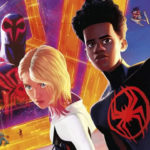“Ah,” Christopher Priest said with a smile, “the plot thickens!”
He and I let out our quick belly laughs and filled the hall with our echoes. He commented on my notepad and journalistic demeanor amongst the few attendees that came to his panel. Unlike other cons I had been to, this was the first time that I had been this intimate with any celebrities.
ConTropolis’ Friday was filled with legendary artists, writers, performers and more. And here I was, almost knee-to-knee, with a creator that had done what many could only dream of doing. Yet, as I would learn, he sees his career as a series of “almost there” moments.
Back in the 1970s, there was an internship program in the New York City School System. As a high school senior, Christopher Priest’s (At the time, his name was Jim Mowsley) mother had him apply to five law firm internships. He also loved comic books, and applied to Marvel Comics.
His mother, naturally, wanted her son to become a lawyer but, according to the writer himself, Chris was a little more preoccupied with the wistful trappings of being a high school senior. Therefore, by his own admission, he missed every interview for the law firms, but made sure he attended the interview for Marvel Comics.
I instantly related with this man.
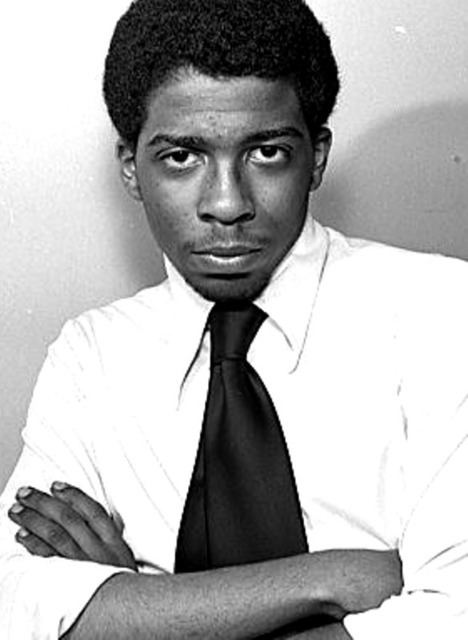
Christopher brought with him to the interview a comic he was working on. He quickly found himself in direct competition with several other artists for the same opportunity. Priest, however, appeared to be the only one coming from a writing background, which seems to be what separated him from the rest of the pack when the Titan-Sized Jim Shooter spoke with him. A week or two after the encounter, in June of 1978, Christopher Priest was officially an intern at Marvel Comics.
“I started working there in September,” Priest said, “so I worked there for a semester.” But, when the internship was done, he went freelance. Fortunately, the people at Marvel loved working with this young man, and he was offered a position at a small magazine nestled within Marvel Comics itself, Crazy Magazine. Eventually, Priest would run the office after school.
“I told myself that I would work at Marvel and Crazy until they canceled the series. Then I would go to college and move on and, you know, become a lawyer like my mother wanted me to.” But when Larry Hama took over Crazy Magazine as the editor, he kept Priest on as an assistant and hired him as a full-time employee. What was, initially, a part-time, fun job to fill time became very much the beginning of his 43-year career. But it was the 1970’s and the way things worked at Marvel was very different from what is now.
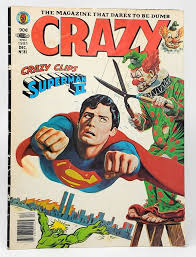
“It was a very free-wheeling place. It was unlike any work situation I had been in before or since. Well, I was a teenager, so I didn’t really have any work experience before this, I didn’t really have much to compare it to. These people were insane. I can’t describe it,” Priest said before taking a pause to meet that challenge and find the words to say. “It was just this office of people who never grew up or never wanted to grow up.”
“So, I learned from the best. The people that were staffing; that were there every day.”
But even Chris would get star struck. When Chris Clermont came into the office, during his run with X-Men, he ran over and gave him a big hug! “He looked at me like, ‘Who’s this kid?!’”
Marvel Comics during the 70s and 80s, according to Priest, was everything you’d think it would be. “Stan Lee was still working in the building, bi-coastal by that time.” And Stan Lee helped to develop Priest’s talent even more before he left the New York offices for Los Angeles to help steady Marvel on the west coast.
However, the times he had at Marvel Comics weren’t always the best. During his time as an intern, he was tasked with making photocopies of pages for Tomb of Dracula, which is the comics universe that Blade originally came from.
“So you had these gorgeous Gene Colin pages. And Gene used, it wasn’t a number 2 pencil, I don’t know what lead he was using because the lead was incredibly soft and it would come off on your hands all the time. And Marvel would have me Xeroxing these 48, 64 page Tomb of Dracula stories and I’d have to make three or four copies of these things so I’d have to copy over and over and over. And people would come over, there’d be this gag where they’d hold up my hand and say, ‘Look! His hand is black!’ And I’d go, yeah yeah, very funny.”
Chris would still fetch coffee and run errands. But the one person that treated him differently was Jim Shooter. He took Priest under his wing and made him a prodigy, assigning him inventory stories that had no official deadline. He would edit it and rewrite it over and over again as Shooter instructed him on changes. This was the true beginning of his comic book career.

Shooter assigned Chris to Denny O’Neil, who Priest was a huge fan of. In the upcoming Superman: Lost which Christopher Priest wrote, there is a sequence that pays homage to O’Neil’s run of Superman (which Denny personally hated, but Priest adored) that includes a “Sandy Superman.” The fans of that run in comic history will be happy to find such a deep cut in a current DC comic.
Prior to O’Neil and Priest being friends, the young apprentice of Jim Shooter was assigned to write on Power Man and Iron Fist, which Denny was not a fan of. Initially, Priest felt he was treated like a plant or a stooge. However, only after two or three issues, Denny saw the same talent Jim had already seen. Denny always encouraged the young man to improve his writing, something that years later Priest would return to O’Neil when their roles were switched at DC Comics.
However, it took Priest back when O’Neil was extremely combative and defensive on the first draft of his story. Priest always took it on the chin, and never expected someone he looked up to as a hero to act that way.
While that produced the only fight of the duo, Priest said, “Well, you know Denny, I worked with you for, what, 20 years at Marvel and DC doing one thing or another. And I never did to you what you did to me. You know, and, I’ve always shown you that respect and I’m showing you that respect now. I was trying to save you from yourself and show you where it could be better. And eventually he got a hold of himself and he went back and did another run at it and it was much better…you know, you’re Denny O’Neil, I want Denny O’Neil’s name to mean something.”
That attitude of stalwart faith in one’s beliefs that what they are doing is right, that assuredness, isn’t something that is common now or even back then. Even then, some took it as stubborn or rude. But at no point did Chris ever come across as arrogant or stuck up. Priest simply was no longer interested in caving to any sort of standard that he didn’t feel comfortable with.
When Christopher Priest took on Luke Cage in Power Man and Iron Fist, he wanted to add in code switching: when you talk a certain way with a certain group of people. It was more common in cities than it is now, where it has become normal even in suburban settings. But, in the context of Luke Cage, it was all wrong.
“They had Cage saying ‘Sweet Christmas’ and stuff like that,” Priest said. “So I would have Luke code-switch at different points and I would get criticized for it! ‘You write terrible white dialogue,’ you know, and I’d hear that and I wanted to go ‘Do you have any idea how racist that–what’s Black Dialogue?!
“There was one sequence where Luke is talking to this guy at the diner. And he was giving him the riot act and he’s doing all this stuff here and whatever he was trying to persuade him to do, he failed to persuade him to see his point of view. So Luke is walking out of the diner and there’s this thought balloon and he thinking, ‘well, you know, I tried my loud angry Negro routine, that didn’t work. I’ll need to try something else.’ And that was the point, that Luke could turn it on and turn it off.”
Eventually after some time at Marvel, Christopher Priest would find himself at DC Comics. Depending on who you ask, the writer found his way over to the other side for better opportunities. Priest would say that he was “booted across the street.”
In a recent Omnibus addition of Spider-Man, Priest wrote an introduction that he says went somewhere along the lines of, “When I was the Spider-Man editor, I was about 24 or 25-years-old. It was my first editor gig…I was the junior editor. I was the most junior person in terms of seniority on the staff. And I am just finding my way, okay. So that’s me.”
“Jim Shooter, on the other hand, he was Galactus. Okay. So, if anybody thinks that anything I did at Marvel that I was acting in somehow in contravention of Galactus, or that I was defying Galactus, you’re just kidding yourself. Maybe it makes you happy to tell the story that way…but the fact is nothing happened in those days at that shop without his explicit approval or without his explicit directions.”
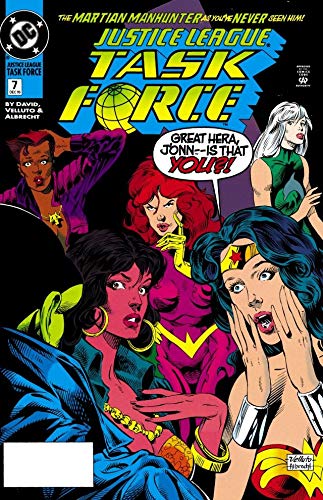
It was a time of turmoil at Marvel and, whatever was going on completely behind the scenes, Priest wasn’t fully willing to divulge or get into. What he was able to tell us was that, eventually, the people at the top offered him more money to write Spider-Man from home than to come into the office. Once that expired, he described himself as a free agent. Denny O’Neil had already made the jump over to DC and the two friends began working together once again.
But, by Priest’s own description, he was always a bridesmaid and never a bride. He always seemed, in his mind, to never get the actual big project he was always looking for. For example, he was able to work on JLA (Justice League of America), but on the book, JLA: Task Force, which he described as “The JLA’s Ugly Simpleton Cousin.” However, the biggest impact he made there was for rebooting a major player in the Justice League: Green Lantern.
Those changes to Green Lantern were in the Emerald Dawn arc for the character, but by issue 2, Priest was gone, citing creative whiplash between various editors on the team. Priest is also responsible for Steel, a satirical deconstruction of Superman where everything, Superman, Lois Lane, and Metropolis, are all dysfunctional. Most, however, did not understand what he was going for, by Priest’s own admission. And once the Super Family came about, a very similar concept to the Shazam Family, Priest was no longer interested. Steel eventually became a sidekick of Superman by 1998.
A disillusioned Priest found his way, once again, back to Marvel. Given yet more promises of grandeur, the writer was given the launch title to the Marvel Knights imprint in 2000. Excited, Priest assumed it would be Daredevil or someone as popular at the time. When he got the call, it was Black Panther.
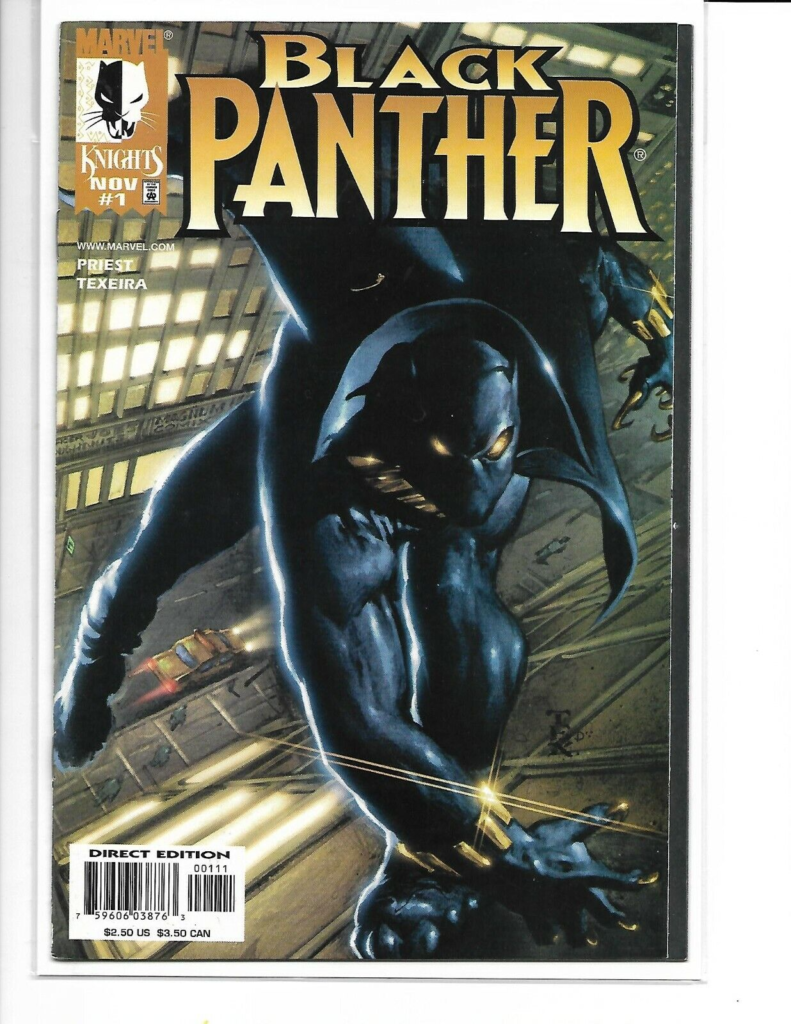
“Now Wakanda as a concept was created by Stan Lee and by Jack [Kirby], but really Don McGreggor is the guy that created the Wakanda that we know of…Black Panther, I’d like to think, had a lot of Mommies and Daddies.” But even though the book was a success, no one was expecting the launch of the Marvel Knights imprint to be Black Panther, not even Christopher Priest himself.
At the time, he was crushed. He felt like it was more of the same, once again getting a minor league character in a major league game. So he would do it, but he would not take any interference from Corporate. He pitched a smarter, more indestructible T’Challa.
“It never made any sense to me that he has this mound of Vibranium and he won’t do anything with it.” Previously, Black Panther’s suit was simply cloth. The nation of Wakanda was taken to another level not previously seen. Most, if not all, of the key attributes of the MCU version of Black Panther are from the Marvel Knights version penned by Priest.
Chris looks back and remembers the hate mail from the Black Panther purists, particularly the invention of the “Kimoyo Card,” which operated and functions very closely to a modern day smartphone. He also added in some more humorous moments to the traditionally stoic tone.
Fans of the book, like the moderator of the discussion, loved how the run went: in particular, all of the changes Priest had made as well as how the narrative was told out-of-sequence. Especially how, as an X-Men kid, Black Panther could hold his own against Sabertooth, punch out Mephisto, make Reed Richards question his mouth, and even out-wit Spider-Man.
Priest was also quick to point out that, “That’s just the ingenuity of the character as a result of how his father trained him, that he’d have a contingency plan for everything. Which they ripped that off for Batman, by the way, where Batman has a contingency plan for defeating the Justice League. Black Panther did that 20 years ago.”
And it seemed that all would be well between Marvel and Christopher Priest, at least from the outside. But by 2005, with the sudden announcement of his retirement, the famed writer was seemingly done.

“Well,” Priest said, “a couple of things happened. One was that they canceled Black Panther and they gave me a book called The Crew. We spent a year tooling at The Crew, we were putting together a really good book. It’s one of these Cult Classics now that has like a rabid following. It’s a small, but rabid following, of people who read that series.
“But The Crew was launched with some other Marvel Initiative where they’re launching a bunch of books. And The Crew had nothing to do with, you know, ‘The Marvel Titanium Club’ or whatever this thing was. But they launched us at the same time and when that initiative failed, they canceled The Crew. Even before issue #1, we were canceled. And I took that really personally.
“So, as a consolation prize, they gave us Captain America and The Falcon. And I was writing Captain America and The Falcon and I was pretty happy doing that. And there was another Captain America book being published by Marvel Knights, ironically. So I was doing the Marvel Universe version and they were doing Marvel Knights.
“So the Marvel Knights thing came to an end and there’s only going to be one Captain America book now. And I thought, ‘Well, here we go.’ So, I thought that my artist and I were going to be the caretakers of the Captain America book and they didn’t give it to me. Marvel called me up and said, “Hey, got this great idea, we’re going to take Captain America out of the book and we’re going to relaunch it as ‘The Falcon.’ And to me, that felt like a demotion and I went, “I think we’ve done good work with Captain America and The Falcon, I think we earned our shot…I was disappointed. And more to the point, I felt that I was wasting my time in the business.”
Over the years It didn’t go unnoticed by Christopher Priest that he was being, more and more frequently, used only for black characters. And giving him only The Falcon, which was the black character, just adding to the pile of evidence of just that. It added more fuel to feeling like he was on the outside of an industry he was a part of for over 30 years.
“Somehow I had gone from being a writer where I was writing Spider-Man and Green Lantern and I was competing for assignments along with everybody else…and then somehow I stopped being a writer and I became a ‘black writer.’ As opposed to a writer who happens to be black…so I became really discouraged with both of the major houses.”
Priest did write three prose novels that, unfortunately, no one seemed to read. Then, he became a pastor at various churches as he tried to find himself again after the world of comics. But every 18 months, almost to the day, one of the two houses would give the legendary writer a call offering a new project.
“And they would offer me something that invariably would turn out to be a black character. And I would say, ‘Thank you, it was very nice of you to think of me,’ and so forth. I just felt like I didn’t want to be this limited. I don’t think you should only hire women for women characters or hiring latinos for latino characters. You know, I’m a writer, I can write anything.”
Priest held that line for 11 years, until he was finally offered a character that peaked his interest: Deathstroke.
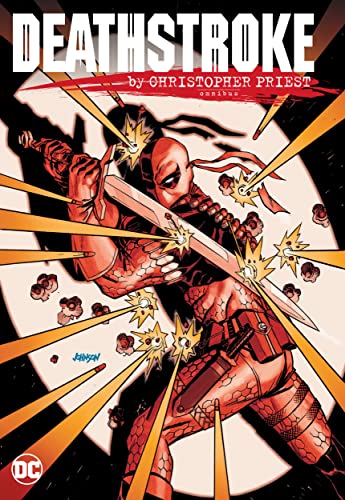
“My first question to them was, ‘Is he black?’ because they kept changing the colors of characters, you know. ‘Is he black?’ and the editor said, ‘no,’ and I said ‘Okay, I’m listening.’ You know, and we talked about Deathstroke for a while…it’s not that I had to write a white character, you know.
“My fondest wish for my Superman book, Superman: Lost, my fondest wish is that you’ll read that book and go, ‘What’s the big deal? It reads like a Superman book. There’s no magic happening, I didn’t hear the heavens open or anything.’ I want people to read that book and go, ‘It’s a solid, fun Superman adventure.’ And the color of my skin had absolutely nothing to do with it. Black people can write Superman just as well as white people. We don’t need to be afraid.”
And that was where the moderator ended the talk. The small group of us gave a round of applause as Priest began walking away. I followed, intent on talking to the man more one on one. We talked about Black Adam, off the record, but there will be even more surprises in store if you’re a fan of the new storyline for the villainous anti-hero (divorced from Dwayne’s cinematic take, which Priest did not see).
“Who’s coming out to talk next?” Chris asked me. I told him that the cast from the Clerks films were coming out soon. His eyes lit up. He asked me if they were supposed to be there and let out a laugh. He was a nerd, just like you and me and everyone else in this world. Excitedly, he ran behind the curtain and began shouting happily at the cast and introducing himself as a huge fan.
That’s what makes Christopher Priest so passionate and powerful when he writes. He never lost that child-like wonder and excitement within himself. He kept his passion alive. I can only hope that, down the road, I’ll be as cool as him.



